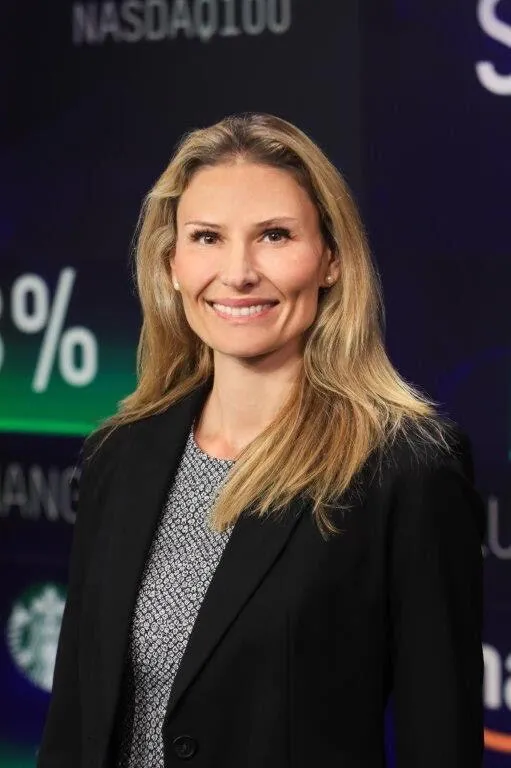Fintechs hit a rough patch throughout the pandemic, seeing funding plummet at the same time as regulators took closer looks at the burgeoning market.
However, there are signs of recovery in the space — which, for clearing firm Apex Fintech Solutions, comes just as the company takes a second stab at going public. The Dallas, Texas-based company is “ripe for evolution, transformation from a finance standpoint,” CFO Chantal Wessels said in an interview.
Wessels took the CFO seat at Apex in October after a decade at Nasdaq, where she served in a variety of roles including as its VP, division CFO and business unit CFO, according to her LinkedIn profile. Apex filed a draft registration statement on Form S-1 with the Securities and Exchange Commission relating to its proposed initial public offering in December, approximately two months later.
Identifying critical skill gaps
Founded in 2012, Apex provides clearing and execution solutions as well as prime brokerage and portfolio management solutions to fintechs and other businesses.
The December draft registration represents Apex’s second attempt to go public in two years, following a failed special purposes acquisition merger in 2021. The so-called “fintech for fintechs” fizzled SPAC deal valued the company at $4.7 billion but fell apart after failing to get cleared by government regulators, according to a December 2021 Forbes report.
Wessels’ experience at public entities such as Nasdaq, which operates the namesake stock exchange, provides her with a unique perspective as she looks to guide Apex through its transition to a public company.

Nasdaq was a very structured business which has “obviously gone through this massive evolution from a trading platform to also a financial technology company,” Wessels said. “But with it comes through rigor around being a public company, and all the controls that come with it.”
Apex is “at the same place in terms of the beginning of the journey” that Nasdaq was when it was beginning its shift to a financial technology player, she said. As well as the typical checklist items that come with going public such as putting the right infrastructure and internal controls in place, Wessels’ experience at a public company can also aid Apex in filling critical gaps.
As finance chief, Wessels is focusing both on ensuring Apex has the right infrastructure and internal controls in place as well as if the company has any “shortage of skills” in critical areas. For example, that could mean considering if the company needs a dedicated SEC reporting team member as they solidify their IPO plans, she said.
“Because I've been lucky I've come from the public world, I know exactly what to look for in terms of skill sets,” she said.
Hitting the right margin, growth balance
As the company takes steps to go public, Wessels, like many CFOs, is also keeping a careful watch on critical trends such as the dawning popularity of artificial intelligence and like technologies, regulatory shifts and high interest rates. CFOs need to ensure they’re hitting a key balance between maintaining an effective margin and driving top-line growth, for example.
“You also don't want to be in a position where you're cutting the business's legs from underneath it because you’re so focused on maintaining margin that you forget to focus on the growth initiatives, to make sure that you actually then generate top line growth,” she said.
Achieving this balance may require thinking about margin differently: public companies almost tend to manage margin on a quarterly-by-quarterly basis, but “I've never really liked that strategy, because it's almost just a rolling problem that you move forward every single quarter,” Wessels said. “So the way that I'm trying to kind of manage margin is, ‘what really clever decisions can we make today, that will really help us for the future?’”
That means optimizing one’s people to ensure the business has the right amount of talent working in the right places, she said, as well as taking a deeper look at what kind of tools and systems one is using inside their own processes. Tools like AI can also come into greater play here — the technology could help to solve age-old challenges like helping to consolidate siloed data that might take human employees a week to compile, Wessels said.
However, while Apex’s finance department is “automating everything we possibly can,” Wessels has also been a strong voice around implementing AI with the right safeguards.
While an AI taught to read financial analysis and trends could shave off critical time — it might take a finance department a week to compile all the necessary information to give an initial take — the important thing about the information is that AI provides “reliable information, reliable data sets,” she said. It’s crucial to have the proper cybersecurity and data governance protocols in place before implementing AI, therefore.
“I think sometimes people get confused because [they think], ‘Okay, I'm going to implement AI, and immediately I'm going to realize all these efficiencies,’” she said, which is not the case. “You have to make sure that you have a strong control environment, because you are exposing AI to a lot of sensitive data.”






















